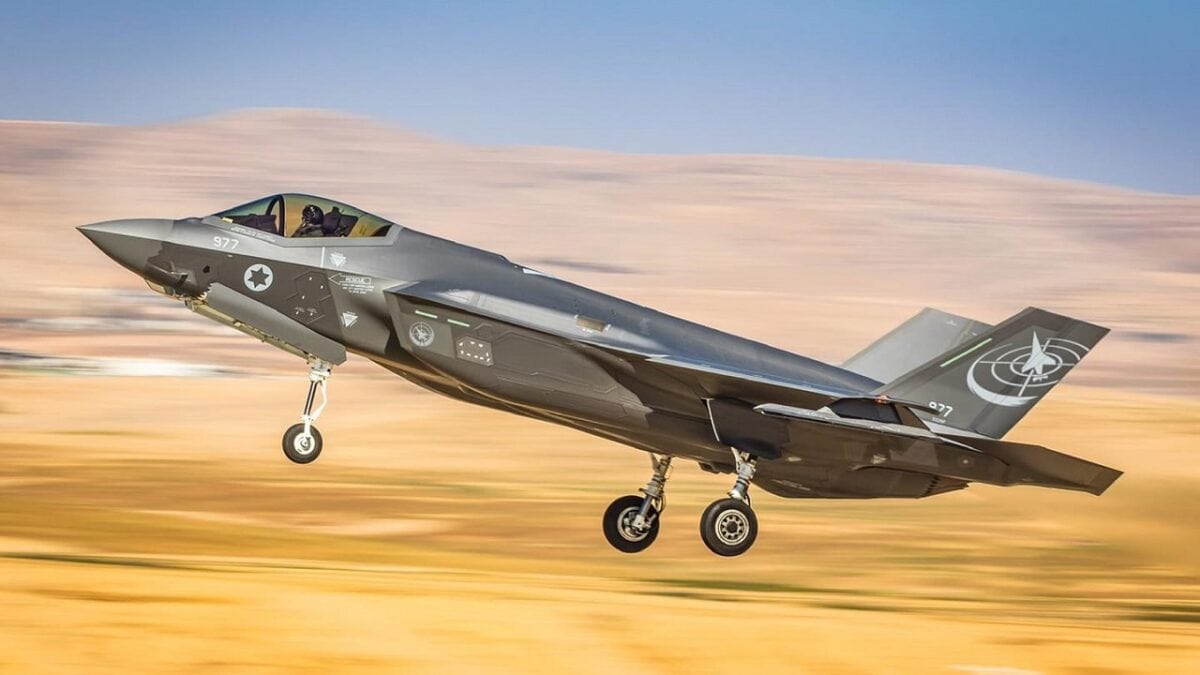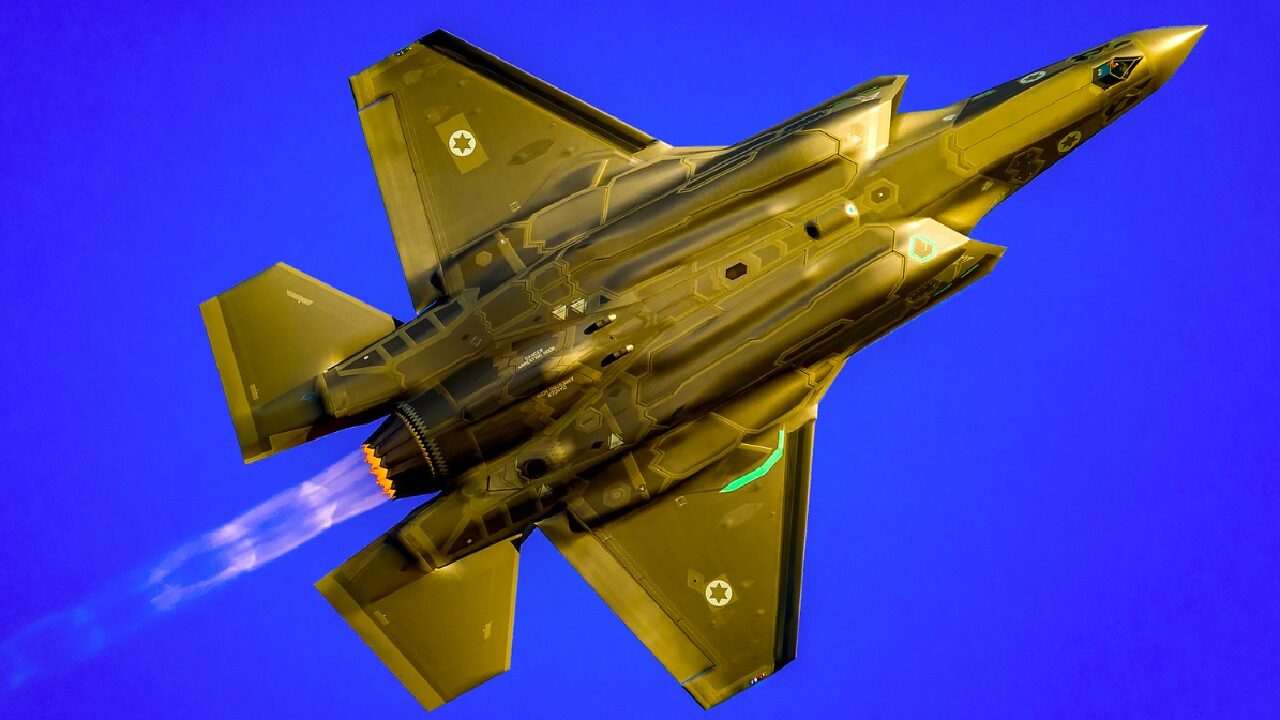The strategic culture framework is still alive and kicking, although harshly debated. Adopting Gray’s view of strategic culture as context, its applicability can be found in the current Israeli approach towards a potential nuclear agreement with Iran, as illustrated by the Israeli Prime Minister Yair Lapid’s recent statement in the UN General Assembly: “If the Iranian regime gets a nuclear weapon, they will use it…This time, we are not standing empty-handed against those who want to destroy us. The Jews today have a state.”
This statement reflects several typical traits of Israeli strategic culture: preventing existential threats from materializing, converging adversary capabilities with intentions in threat assessments, a ‘never again’ approach referencing the Holocaust, reliance on independent military action if all else fails, and exceptionalism.
The US, like Israel, aims at preventing Iran from acquiring nuclear weapons. However, it does not share the same opinion as Israel as to the means for achieving this goal. This is a clash of strategic cultures as much as it is a difference of national security interests.
Acknowledging Israeli strategic culture is crucial for understanding Israeli policy, strategy, and operations.
The nuclear agreement and Israeli strategic culture
For several months, Israel has been conducting a public campaign, underpinned by high-quality intelligence, mainly aimed at dissuading the West from signing a renewed nuclear agreement with Iran. Israeli senior leaders – the prime minister, minister of defense, Mossad director, and national security advisor – have all recently traveled to the US to promote this campaign.
Israel is also strengthening its cooperation with the US, emphasizing it preserves its freedom of action against Iran should an agreement be signed after all. Covert actions against Iran have also been attributed to Israel. Moreover, attempting to engage Iran in a holistic manner, Israel continues to publicly reveal Iran’s malign activities, and reportedly conducts a ‘shadow war’ against Iran’s regional influence.
The Israeli prime minister, in his recent UN General Assembly speech mentioned earlier, claimed that “If the Iranian regime gets a nuclear weapon, they will use it.” This illustrates the Israeli inclination to converge adversary capabilities and intentions. Such a tendency was described by Booth as early as 1979, where he claimed that ethnocentrism might lead to the overestimation of capabilities in threat assessments.
Israel of 2022 would probably refute Booth and claim that lack of ethnocentrism rather than its existence is what allows Israel to see Iran and therefore converge capabilities with intentions. Israel, in this sense, tends to see itself as comprehending not only Iranian strategy and decision-making, but also Iranian culture (Israel, for instance, was more aware than the West of the social upheaval which led to Islamic revolution in 1979). Such comprehension and its implications, in Israeli eyes, are sometimes absent in the West. As the Israeli prime minister recently accused the UN member states: “What are you afraid of? Has there ever been a time in human history where silence stopped violence?”
Prevention, according to this Israeli logic, is therefore imperative. One way or another. With or without international support. Even if major risks are involved. This is another typical trait of Israeli strategic culture. The ‘Begin Doctrine’, exercised when Israel attacked the Iraqi nuclear facility in 1981 and the Syrian one in 2007, illustrates it clearly.
Further back in history, the logic of prevention and the insistence on preserving freedom of action might have also underpinned the Israeli preemptive strike in the Six Day War in 1967. It might have even provided the context for Israeli actions against other threats in recent years, although conventional and not perceived as existential, such as the Israeli ‘campaign between the wars’ conducted since the early 2010s, initially intended to foil transfer of advanced weapons to Hezbollah in Lebanon and which evolved into a campaign to limit Iranian influence.
The reference to the Holocaust is another facet of Israeli strategic culture manifested in its approach towards Iran. In his UN speech, Lapid said: “This time, we are not standing empty-handed against those who want to destroy us. The Jews today have a state. We have an army. We will do whatever it takes: Iran will not get a nuclear weapon.” The ‘never again’ logic stands out clearly. Moreover, the IDF chief of general staff recently implied that Iran should not be allowed to have nuclear weapons. This statement was provided during a visit to the Auschwitz concentration camp; such visits have become routine in recent decades.
A final trait of Israeli strategic culture is the perception of exceptionalism, i.e., assuming that Israel faces unique and idiosyncratic threats which must be addressed by exceptional measures; and of solitude, i.e., self-reliance underpinned by skepticism of international support. While Israel constantly searches for international support and legitimacy, its foreign policy has also often discounted the world and assumed that Israel has only itself to trust. The latter approach even has roots in Jewish biblical tradition, where the people of Israel are portrayed as those who ‘shall dwell alone’. In its current approach towards Iran, and the corresponding calls to the international community for pressuring Iran, Israel manifests both exceptionalism and a perception of solitude.

F-16I Sufa. Image Credit: Creative Commons.
The Iran problem is exceptional, as Israeli leaders state, since it is a rare case of a member state of the UN (Iran) openly threatening to destroy another member state (Israel), while its leaders openly question the Holocaust. Hence, Israel understands that a time may come when it will have to act independently.
Different political and military approaches, reflecting a similar strategic culture
The approach towards Iran and the related interaction with the US is internally debated in Israel. The current Israeli government, for instance, is criticized by former prime minister Netanyahu, who advocates for a more aggressive approach towards the US and the international community. Netanyahu himself, when serving as prime minister, spoke in the US congress against the imminent deal with Iran in 2015, despite the Obama administration’s dissatisfaction. He also made public use of a Mossad operation to pressure the Trump administration to retreat from the agreement in 2018. Both these moves created internal debates in Israel at the time.
Even inside the Israeli national security establishment, different opinions exist. On the one hand, the Mossad director stands out as the most extreme opposer of the agreement and has even been quoted (although not spoken publicly) as criticizing US policy. On the other hand, the director of Israeli Defense Intelligence has been quoted (although not spoken publicly) as preferring a ‘bad agreement’ with Iran over absence of negotiations, thus allowing Israel more time to prepare a military option.
Israel has faced similar internal debates in the past. For instance, when considering a military strike against the Iranian nuclear project circa 2010-2012, Israeli political leadership was in favor of a strike, while directors of the national security establishment opposed it – considering its potential severe consequences, as well as low chances of sufficiently damaging the Iranian nuclear project.
These different perspectives still seem to reflect a similar foundational perception of Iran, and therefore a similar strategic culture. Moreover, in a poll conducted in Israel in 2021, most of the Jewish population indeed viewed Iran as an existential threat and even supported an Israeli strike in Iran. These Israeli beliefs seem almost independent of political stance or military doctrine.
However, some doubts might be emerging in Israel, although it will take some time to understand if they reflect an emerging change in Israeli strategic culture. Former Mossad directors Pardo and Halevy suggested that even if Iran acquires nuclear weapons, this does not mean the destruction of Israel. Commentators and defense experts have offered similar ideas. Former prime minister and minister of defense Ehud Barak claimed that Israel needs to prepare for the new phase of a nuclear Iran.
A clash of Israeli-US strategic cultures
The US, like Israel, is committed to preventing Iran from acquiring nuclear weapons. However, its policy and strategy regarding the way to reach this goal are different from the Israeli ones. More broadly, confrontations between these two strategic partners regarding Iran have occurred many times in the past: in 2015, when Israeli prime minister Netanyahu clashed with the Obama administration as discussed earlier; in 2011, when the US warned Israel of a unilateral military strike in Iran; and after the US national intelligence estimate (NIE) published in 2007, which caused harsh criticism in Israel.
These disagreements reflect not only different national security perspectives, but also a clash of strategic cultures. The US strategic culture as manifested in the Iranian nuclear case perceives a military solution as the last resort; manifests diplomatic optimism; exercises a problem-solving attitude; and solves ‘one issue at a time’, not engaging other aspects of Iran’s malign activities. Moreover, the US does not perceive Iran as an existential threat. It has other and more pressing national security concerns.

Photo by Amit Agronov via IDF.
Conclusion
Acknowledging Israeli strategic culture in the context of the Iranian issue can improve the understanding of Israeli policy, strategy, and operations. It can provide the context for the risks Israelis are willing to take when engaging Iran. Such understanding enables trust-building between partners, even if their national security interests diverge. The strategic culture framework, therefore, can be useful for the practice of strategy.
Itai Shapira is retired colonel from the Israeli Defense Intelligence (IDI), with more than 25 years of experience as an intelligence analyst and manager on the tactical, operational, and strategic levels. Itai has published articles about Israeli strategic and intelligence cultures and about broader issues of intelligence in Intelligence and National Security, War on the Rocks, Defense One, Small Wars Journal, and RUSI. He is currently a PhD candidate at the University of Leicester.

